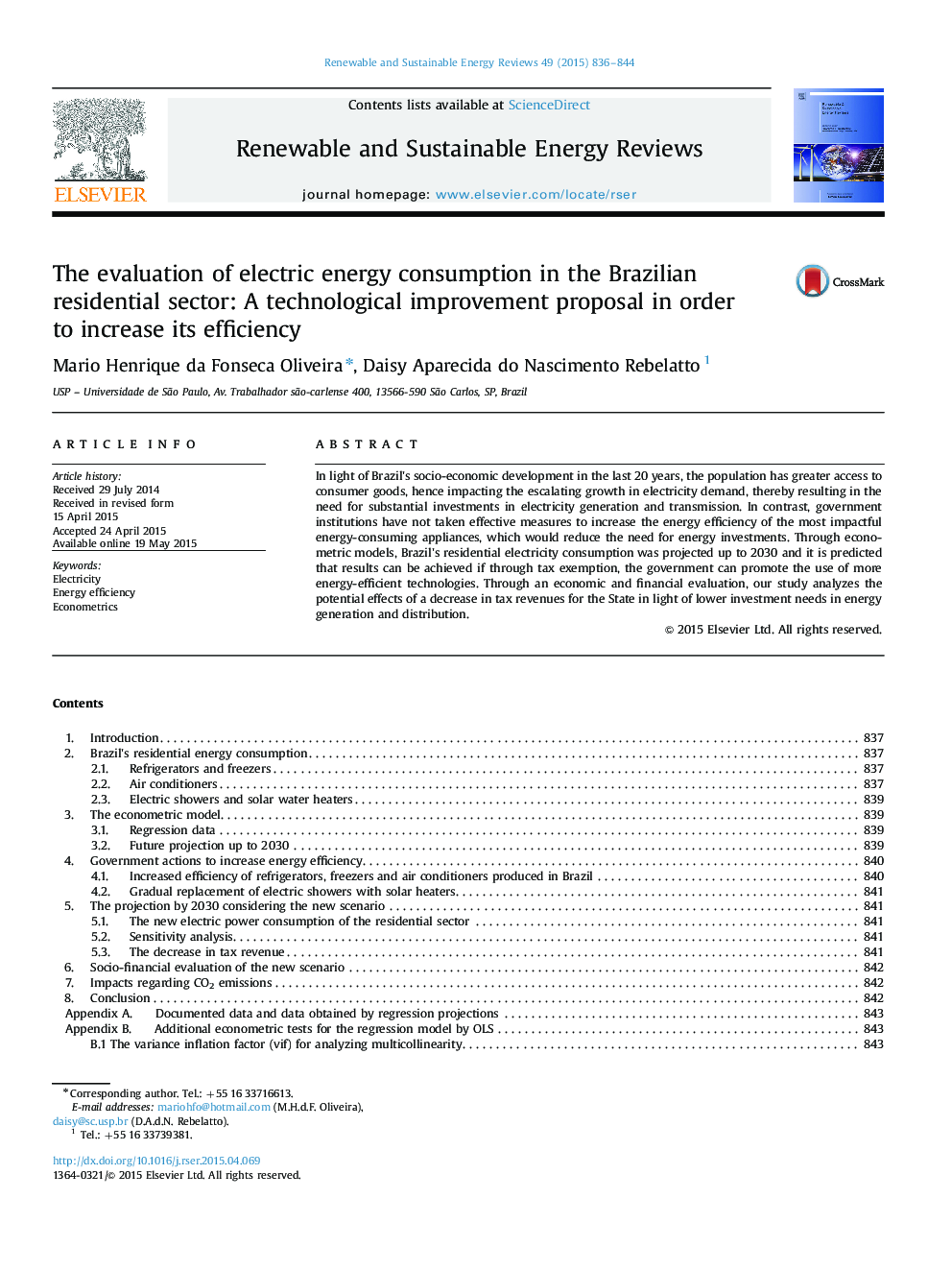| Article ID | Journal | Published Year | Pages | File Type |
|---|---|---|---|---|
| 8116867 | Renewable and Sustainable Energy Reviews | 2015 | 9 Pages |
Abstract
In light of Brazil׳s socio-economic development in the last 20 years, the population has greater access to consumer goods, hence impacting the escalating growth in electricity demand, thereby resulting in the need for substantial investments in electricity generation and transmission. In contrast, government institutions have not taken effective measures to increase the energy efficiency of the most impactful energy-consuming appliances, which would reduce the need for energy investments. Through econometric models, Brazil׳s residential electricity consumption was projected up to 2030 and it is predicted that results can be achieved if through tax exemption, the government can promote the use of more energy-efficient technologies. Through an economic and financial evaluation, our study analyzes the potential effects of a decrease in tax revenues for the State in light of lower investment needs in energy generation and distribution.
Related Topics
Physical Sciences and Engineering
Energy
Renewable Energy, Sustainability and the Environment
Authors
Mario Henrique da Fonseca Oliveira, Daisy Aparecida do Nascimento Rebelatto,
